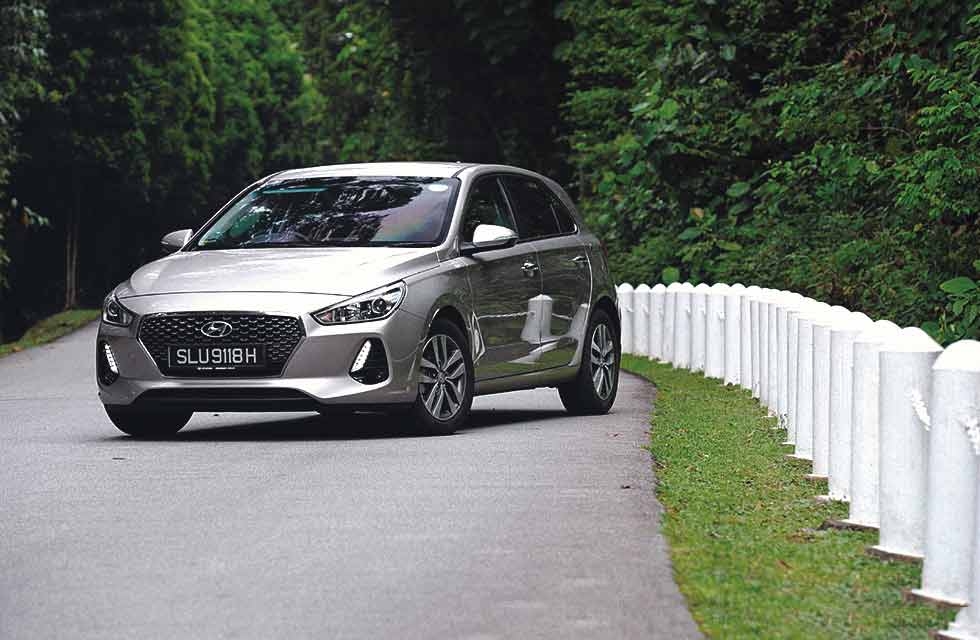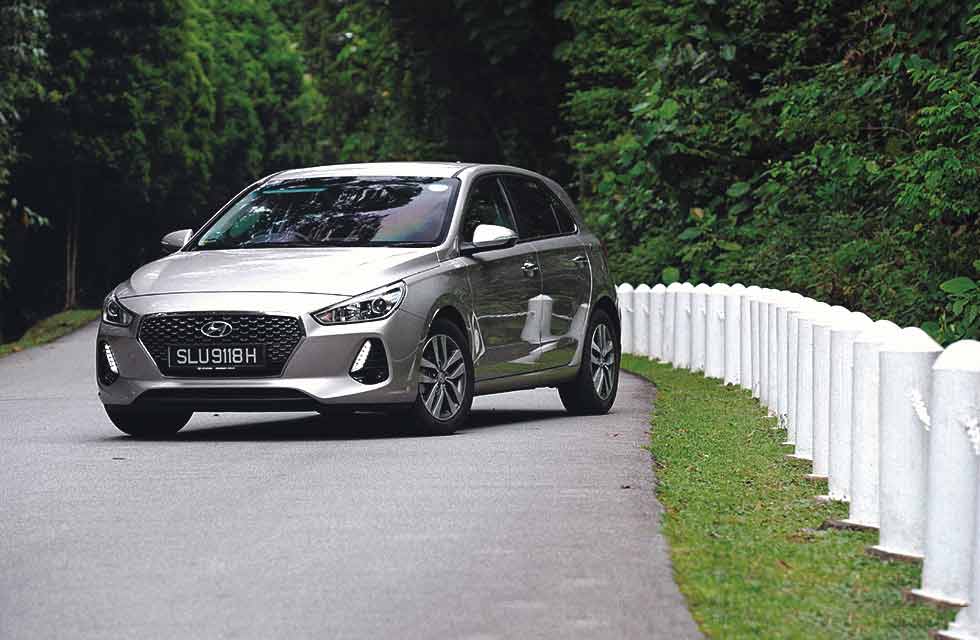
The Korean carmaker closes in on the VW Golf but does it beat the German at its own game?
Does the formula for a hatchback with a 1.4-litre direct injection turbocharged engine and double clutch automated gearbox sound familiar? Distinctly German perhaps? It is no secret that when it comes to a car of this description, the benchmark of the segment is undoubtedly the Volkswagen Golf.

However, heavy is the head that wears the crown if upstarts like Hyundai keep producing ever more accomplished models like the i30 tested here. Recently, we have sampled some of the latest products from the Korean carmaker and come away impressed by quality, performance and comparative value they represent. It is time to see if the i30 is able to keep up the impression.
More crucially perhaps, the previous models we drove were outliers like the Kona, where there weren’t any real direct competitors, especially when it came to the 1.0 manual. This time however, the i30 has to contend with the incumbent Volkswagen Golf as well as others such as the new Kia Cerato with which it shares the Hyundai’s underpinnings.
From the exterior however, the Hyundai i30 hatchback looks a little underwhelming. It lacks the crisp, angular creases that make the VW Golf look like it is chiselled from a solid block. Or maybe the colour that the test car came in made it look like something that would appeal to the Pioneer Generation.
The interior on the other hand is a much better effort as the photos show. There’s a multifunction display that takes centre stage on the dashboard that sports clean lines plus well laid out switch gear to avoid looking cluttered. It doesn’t take long to get accustomed to where the controls are. These days, you can’t sell a car that doesn’t have USB inputs and it is foreseeable that wireless charging trays like the one in the Hyundai i30 are set to be the next must-have in new cars.
It is all well and good with the Hyundai i30’s interior until closer inspection reveals the construction of certain panels; the quality of materials used are just a skosh below that of what VW uses in its cars. If Hyundai is serious about its ambitions, this is one area that gives the game away.
Egress to the rear passenger compartment is the next area where it falls behind the Golf. for starters, the rear wheel arch cuts too deeply into the rear door that results in a tight egress for passengers. Next, the sill is on the high side, which tends to catch a wayward heel or can make getting out awkward for ladies in short skirts.
However, it is in the driving department where the Hyundai i30 surprises most. With 140hp on tap from its Gasoline Direct Inject (GDI) turbocharged unit, there’s enough oomph to put a smile on its driver’s face when speeding away from lesser traffic whenever the lights turn green. It certainly feels faster than the 9.2 second century sprint time on paper suggests. Perhaps a big part of where the i30 gets its pace from is helped by its low kerb weight of under 1,300kg. That’s lighter than a BMW i3. The seven-speed Double Clutch transmission (DCT) is responsive enough to make the most of the available engine power and is smooth enough in slow driving conditions to rival conventional automatic gearboxes when it comes to refinement and smooth shifting.
A good thing then, that Hyundai seems to have made proper chassis development a priority with this car as it is capable of decent levels of feedback that inspires the driver with confidence.
In pure driving terms, the Hyundai i30 gives the likes of the VW Golf and even the Honda Civic a serious run for their money while the generous list of standard features make the Korean hatchback a compelling proposition.
TECHNICAL DATA FILE SPECIFICATIONS 2019 Hyundai i30 GLS DCT 1.4 Turbo
Engine In-line 4, 1353cc turbocharged
Max Power 140hp @ 6,000rpm / DIN
Max Torque 242Nm @ 1,500rpm / DIN
Transmission 7-speed twin-clutch automated (PDK-type), FWD
062-MPH (0-100km/h) 9.2 seconds
Top Speed (122MPH) 205km/h
Weight 1,240kg VES banding B ( £0)
Basic price £19,999 with Coe
Contact Komoco motors, 6475 8888
+ Good value and drivability
– Quality not quite on par with German competitors
Drive-My rating 3/5





